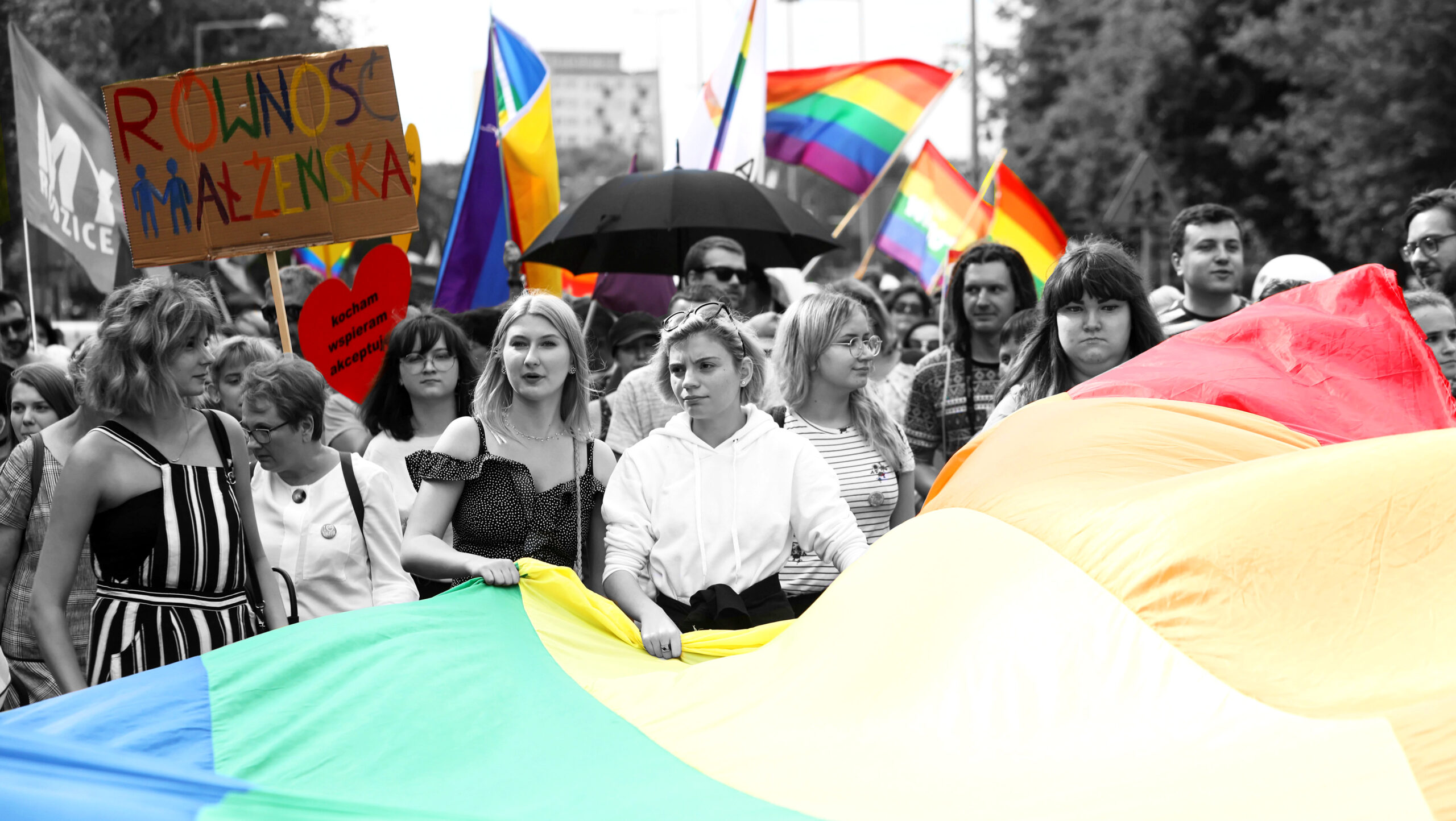To get Xtra Weekly in your inbox, subscribe here.
WEEKLY EXPLAINER
Hostile anti-LGBTQ rhetoric has become more pronounced and visible in Poland, especially in a time of increasing right-wing nationalism.
Here’s the background In recent months, Poland’s ruling Law and Justice (PiS) Party, has been more overt in using an anti-LGBTQ rights stance to secure the right-wing vote during this year’s European and national parliamentary elections.
This first started when Warsaw’s mayor, Rafa Trzaskowski, signed a 12-point LGBTQ rights declaration in February. In it, the government of Poland’s capital established progressive policies on issues including finding shelter for queer children thrown out of their homes, support of artistic freedom and queer sports clubs and using the World Health Organization’s guidelines to incorporate sexual education into schools.
During a party convention in March, Jarosaw Kaczyski, the leader of PiS, called out Trzaskowski and told his party’s supporters that the mayor’s decision to sign the declaration was “An attack on the family, and an attack conducted in the worst possible way, because it’s essentially an attack on children.”
Kaczyski’s claim is supported by the Catholic church in Poland. In a letter, the country’s bishops said they’re particularly concerned about Warsaw’s implementation of sex-ed. “The declaration contradicts the constitutional right of parents to raise their children according to their own belief.”
In an interview with the CBC, Ola Kaczorek, the co-president of Warsaw-based Love Does Not Exclude Association, said, “The church has a huge influence on people and it’s a great outlet if someone wants to use it — and the ruling party is using it because lots and lots of people are regularly going to the church.” In a 2016 survey by Statistics Poland, more than 90 percent of the country’s population identify as Catholic.
The country’s Ombudsman for Children, Mikoaj Pawlak, also asked Trzaskowski to provide an explanation for why he signed the declaration. Pawlak said the policies outlined in the document impose ideologies “affirmed by only a narrow social group on all parents.”
In an interview, Trzaskowski addressed Pawlak’s claims, saying, “I would prefer the spokesperson to take care of those children who are being charged, who [die by] suicide due to the fact that intolerance is spreading.”
This anti-LGBTQ narrative goes beyond politicians criticizing each other. More than two dozen cities across Poland have declared their towns “LGBT-free zone” — a number that grew after Trzaskowski signed the declaration.
On July 20, things took a violent turn when dozens of LGBTQ people were physically assaulted by members of the far right during Bialystok’s first Pride parade.
Four days later, Gazeta Polska — a weekly publication that supports PiS — included a sticker in that week’s issue that featured a rainbow flag with a black cross through it and the words “LGBT-free zone.”
Yikes. Now what? On July 25, the Warsaw District Court ordered Gazeta Polska to halt distribution of the stickers immediately after Polish LGBTQ-rights activist Bartosz Staszewski’s brought legal action against the publication.
However, Gazeta Polksa rebuked the court’s decision. On Twitter, the paper’s editor-in-chief, Tomasz Sakiewicz, called it “fake news” and challenged the validity of the court order, claiming that it was “unlawful and unenforceable.” Sakiewicz also warned shop owners who sell the paper that “[Anyone who] will hide the paper or the sticker, we will sue them.”
In an interview with Wirtualnemedia published on July 26, Sakiewicz said that if the ruling is upheld it would be “the first case of censorship” in Poland since communism.
“We haven’t got any document confirmed by the court yet […] If I understand well, the decision has to enter into force a week after we get the documents, if we don’t appeal,” he said. “The lack of resistance against the prevention of censorship means drastically limiting free speech.”
The publication has already revised the now-banned “LGBT-Free Zone” slogan, opting for “LGBT Ideology-Free Zone” instead. It has continued to distribute the new version.
What’s the reaction? Local businesses and global companies have taken a stand against the newspaper’s anti-LGBTQ position. Several retailers, including bookseller Empik and petrol stations Circle K and BP, have said they will not sell the paper with the sticker. Companies like Squarespace, Ergo and others have also confirmed they will remove their ads on Gazeta Polska.
On July 29, Twitter user @tmrz_ tweeted that LGBTQ people should post photos of themselves “in school or work showing that we are normal people whom you might meet anywhere: in the shop, on the street, the office.” He also included the hashtag #jestemLGBT (“I am LGBT”), which became the top trending topic on Polish Twitter, with people expressing solidarity with LGBTQ communities.
LGBTQ Poles have revealed their identites using #jestemLGBT on Twitter. Polish celebrities and personalities have also expressed their support. Some queer Poles even released a video lip-syncing to Taylor Swift’s “You Need To Calm Down.”
Amnesty International said the hashtag could start a #MeToo-type movement for LGBTQ people in Poland.
For more LGBTQ2 news, subscribe to Xtra Weekly.



 Why you can trust Xtra
Why you can trust Xtra


